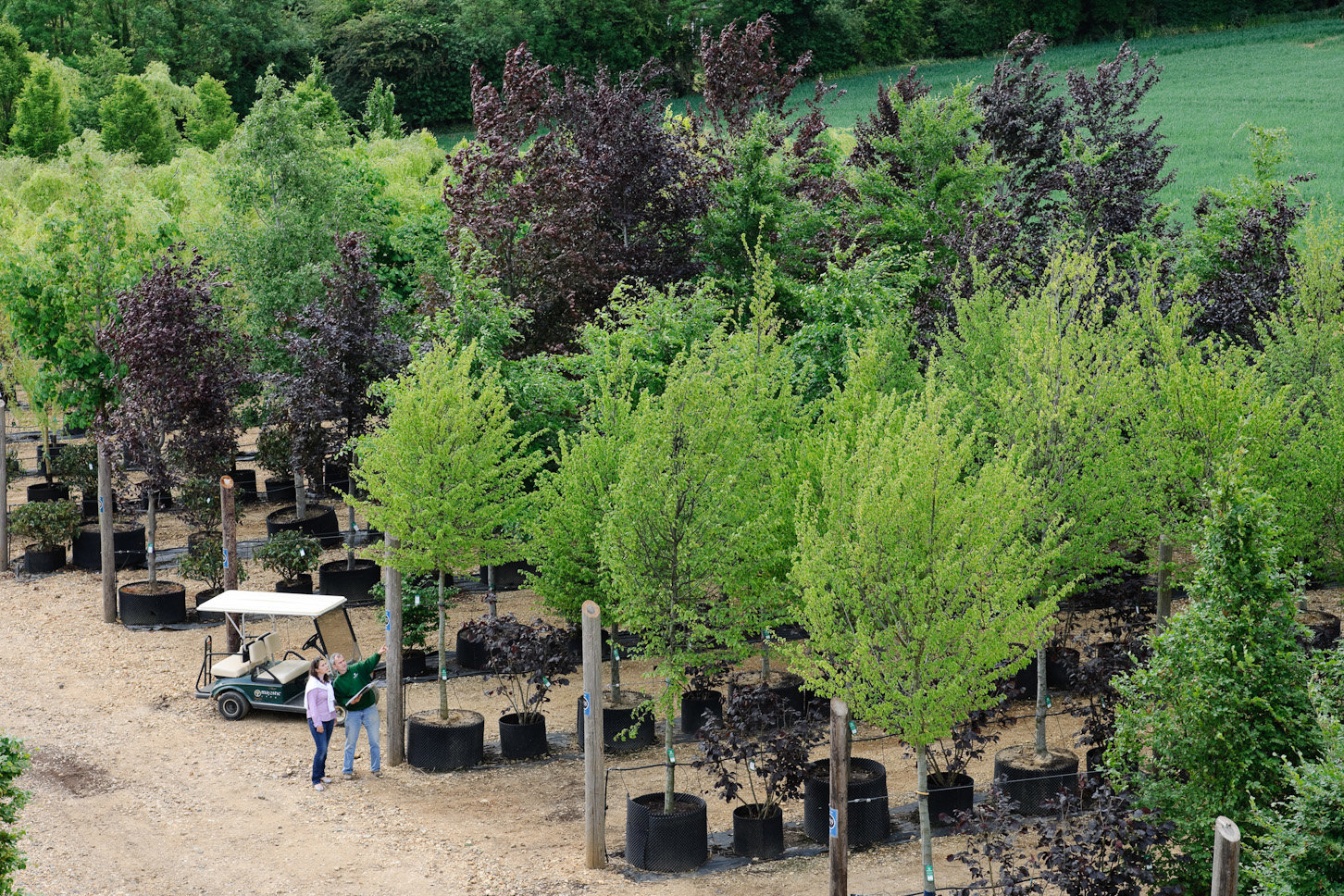
Strong Roots: Growing British Tree Nurseries
Trees play an essential role in sustaining biodiversity, mitigating climate change, and enhancing public wellbeing. They improve air quality, provide habitats, store carbon, reduce flooding, and support local economies. In 2023/24, Britain planted over 20,000 hectares of new woodland, the highest in 35 years, yet meeting future planting targets will require a dramatic increase in domestic tree production.
The Strong Roots project, a collaborative project involving the Woodland Trust, Horticultural Trades Association, National Trust and Royal Horticultural Society, explored the key barriers to domestic tree production and identified solutions to increase the availability of homegrown trees, producing evidence-based recommendations for improved governmental support for the sector.
This process involved a desk-based review of the existing evidence, two online surveys, and stakeholder interviews. This report applies to Great Britain.
Click below to go to the relevant section:
Key findings:
- Strong market confidence and demand for British trees is vital for growth
- Seed supply can be limited due to natural fluctuations and poor market confidence
- Britain lacks a rootstock production sector
- Tree production grants have aided production of forestry saplings but need to be expanded
- Labour and skills gaps prevent expansion of the sector
- Research and innovation are essential to increase production efficiencies
- Community tree nurseries face financial and regulatory barriers

Recommendations
- Establish a GB Tree Procurement Unit.
- Conduct a feasibility study on what percentage of imported material could be grown in Britain.
- Develop an action plan for productive and ornamental trees.
- Establish a tree production research group with research institutions.
- Create and promote a logo for British-grown trees.
- Increase alignment between tree supply, demand, and planting grants.
- Support landowners to contract grow trees when using government planting grants.
- Publish regular and clear data on imports of woody stemmed species, such as trees, shrubs, topiary, and hedging.
- Commit to the establishment and management of seed sources
- Sensitively revisit seed collection procedures on protected sites, including SSSI, to open the genetic resources of these sites.
- Revise the current outdated seed provenance zones.
- Support competition and diversification of seed supply.
- Aid uptake of automation.
- Ensure courses and apprenticeship opportunities meet current and future skills needs.
- Embed tree production across the national curriculum as part of horticultural education.
- Increase tree production skills using publicly owned facilities.
- Launch a project on how impacts of climate change may affect tree production.
- Provide accessible government funding for CTNs and small nurseries.
- Commit to sustained funding to support CTN networks.
What has been said about Strong Roots
"Working with our tree nursery sector for a diverse supply of homegrown trees is not just a matter of preference; it is essential to thriving landscapes and enabling environmental and nature commitments"
- Arit Anderson, British garden designer and writer
Strong Roots Webinar
Strong Roots partnership - A webinar for HTA members

Boosting domestic tree production to hit Government climate and nature targets, warns new report
The Government’s climate change and biodiversity targets will not be met without greater support for domestic tree production, according to a new report produced by the Woodland Trust, the Horticultural Trades Association (HTA), the National Trust and the Royal Horticultural Society (RHS).
Still got questions?
Should you have any additional questions or queries, please do not hesitate to contact us at the HTA for additional information
